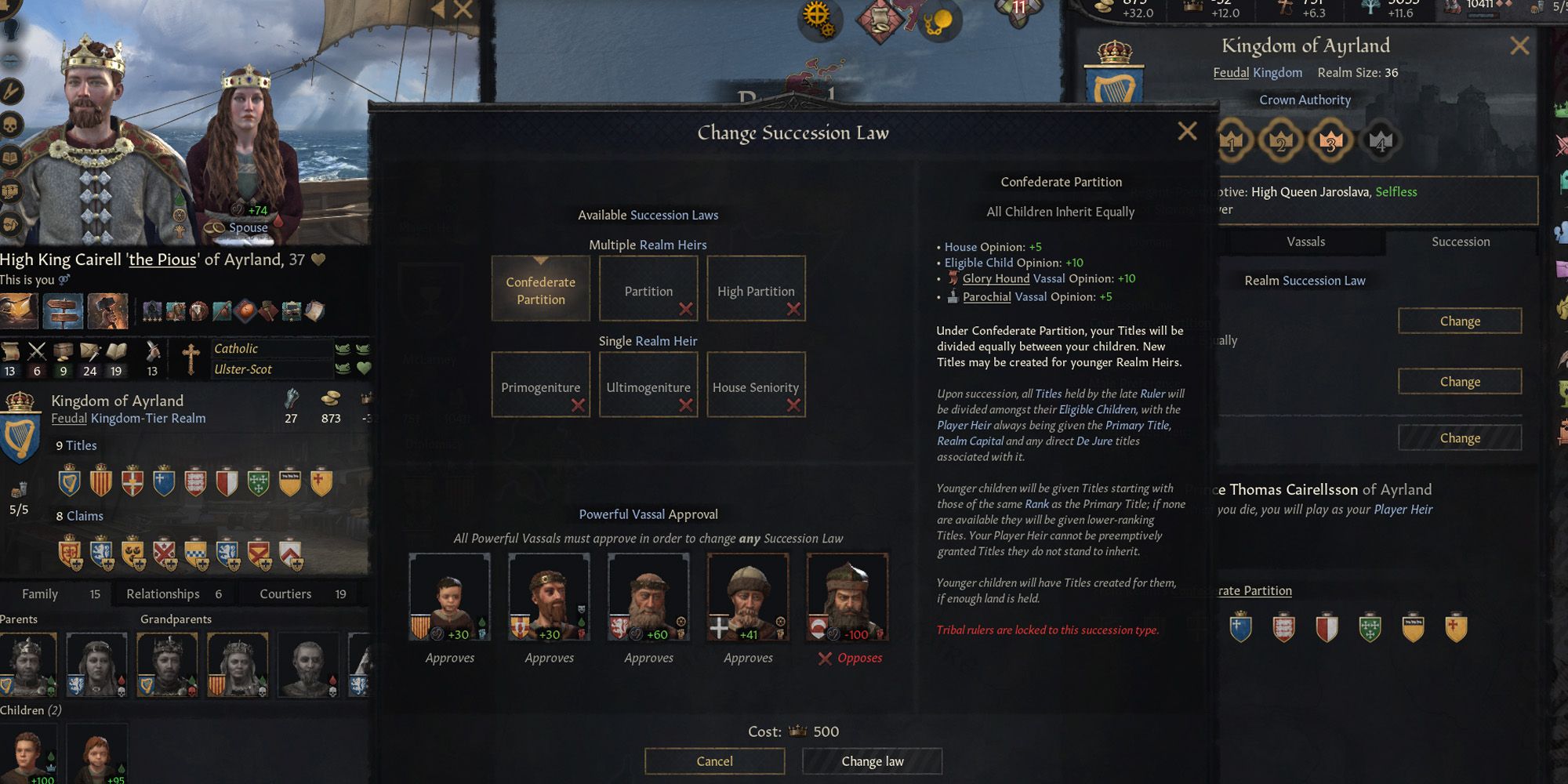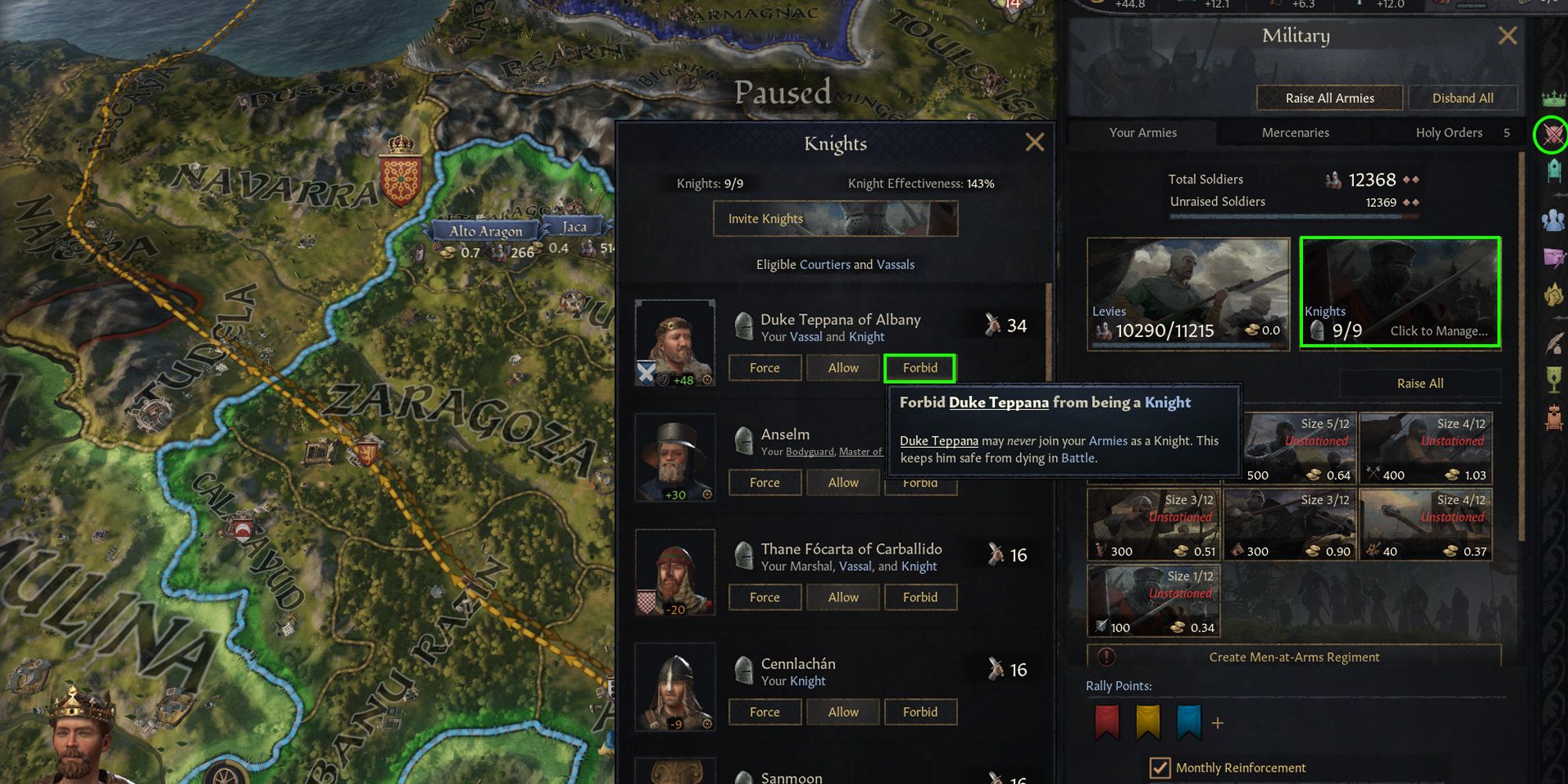
Mastering Crusader Kings 3: The Ultimate Guide to Protecting Heirs from Mortal Combat

Ensure the survival of your dynasty in Crusader Kings 3 by safeguarding heirs from deadly combat encounters Discover effective strategies to shield them from the front lines and secure a prosperous succession Master the art of knight management for ultimate dynasty longevity
In Crusader Kings 3 by Paradox Interactive, players can experience the intricacies of leading a Medieval Dynasty across generations and diverse settings. To ensure the dynasty's future, it is crucial not only to produce heirs but also to safeguard their survival and potential inheritance of power from their liege.
There are various risks that can lead to the loss of heirs, including disease, murder, accidents during training, tournaments, hunts, and deaths in battle. While death in battle may be seen as a noble cause, it can create complications for succession and territorial governance. Fortunately, players have the ability to oversee their knights and courtiers, protecting those who are less skilled in combat but hold value in other areas, saving them from brutal slaughter on the frontlines.
Succession
Managing the succession of a kingdom is a crucial duty for a ruler. Once a ruler passes away, their heir or regent assumes control of their former powers and territories. However, it is important to note that this arrangement can be affected by the succession law and the number of siblings the heir has, possibly leading to fragmentation.
It is highly recommended to ensure that the successor receives a comprehensive education early on, as this facilitates the development of positive traits within the dynasty. Despite the best efforts of the player, unfortunate accidents may still happen. Children can be lost in certain events or even unexpectedly through incidents like falling, drowning, or disease. Fortunately, such occurrences are relatively rare rather than common. Nonetheless, to ensure utmost security, it is advisable to have a minimum of three children in line for a position of great power under a liege.
Knight Management
By default, all heirs and courtiers are allowed to participate in military exercises and excursions. This can be advantageous if these characters possess a high Martial skill and serve as vassals or courtiers. However, it is recommended to prohibit heirs and council members from participating in combat to ensure the longevity of the most skilled characters in areas such as Diplomacy, Stewardship, and Intrigue.
To forbid heirs and other courtiers from combat, navigate to the Military tab in the right-hand side menu, then go to the Knights section where a list of eligible courtiers and vassals will be displayed. From here, players can choose to Force, Allow, or Forbid a character from engaging in combat. In some cases, it may also be wise to force certain troublesome vassals or courtiers into combat, as this increases their chances of a natural demise rather than resorting to schemes to eliminate them.
Crusader Kings 3 is available on PC, PS5, and Xbox Series X/S.








